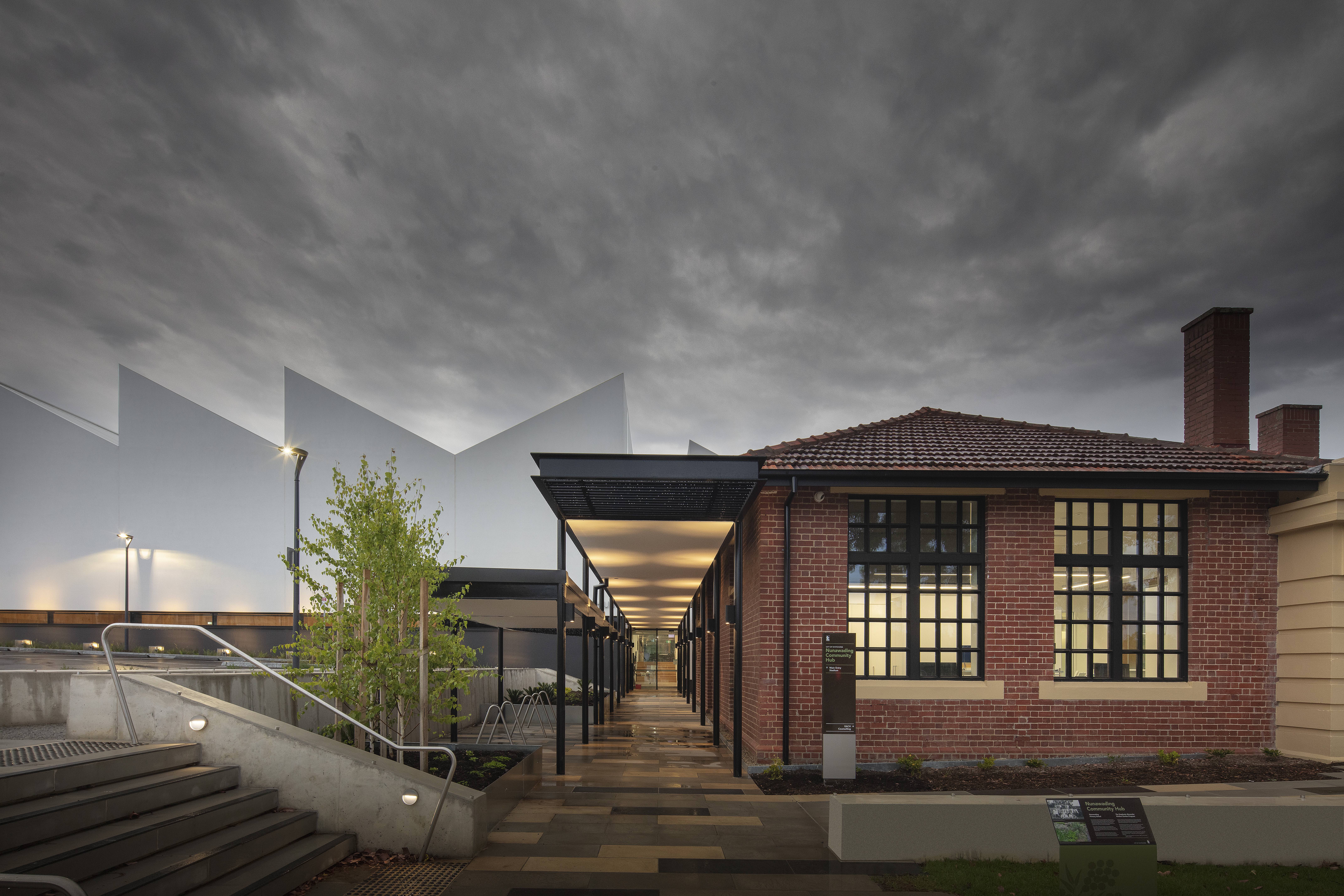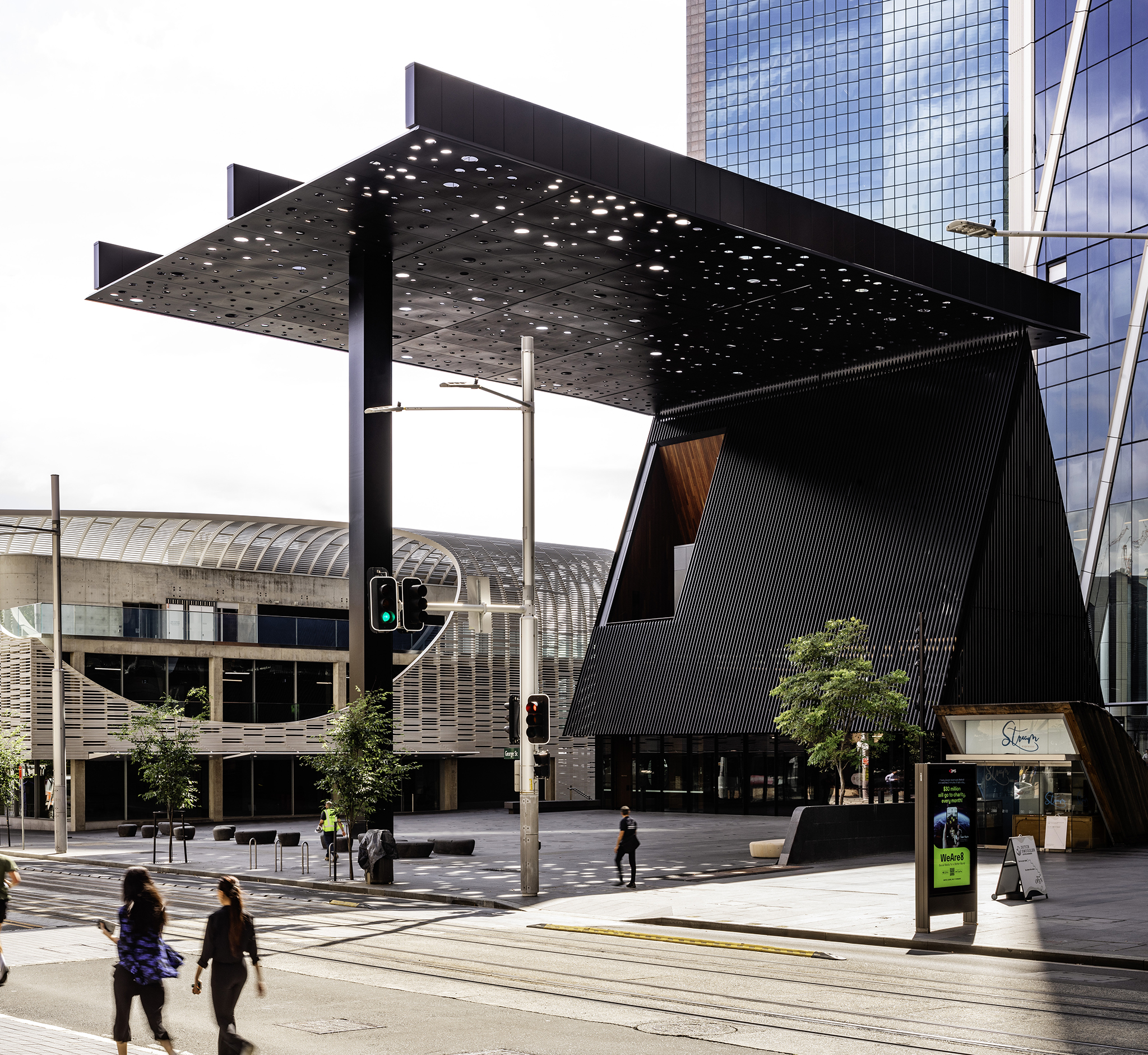Architizer’s thirteenth A+Awards contains a suite of sustainability-focused classes recognizing designers which might be constructing a greener trade — and a greater future. Begin your entry to obtain world recognition to your work!
In 1930, the economist John Maynard Keynes predicted in an essay, “Financial Potentialities for our Grandchildren,” that by 2030, we might be working simply three hours a day, with the remainder of our time dedicated to leisure, cultural pursuits and civic engagement. Unsurprisingly, consultants on the time laughed.
But, as we quickly strategy that date, his nearly a century-old prediction feels much less like a pipe dream and extra like a chance. Synthetic intelligence is surging towards a projected $1.3 trillion market worth by 2030 and whole classes of human labor are anticipated to fade in its wake. In consequence, we now see ourselves standing on the threshold of what some are calling a “post-work” society. In contrast to in Keynes’s time, many consultants at the moment are assured that the unfold of AI may imply that human labor is now not essential to generate the fabric wealth required for everybody to stay comfortably.
Throughout Europe, Common Revenue is already being explored with typically constructive outcomes. It’s radical new territory the place financial survival strikes away from particular person skilled contribution to collective state assist that evens the enjoying discipline. What could be left is societies and communities which have time and psychological area for actions that free the human potential.
After all, these shifts problem longstanding cultural assumptions. Work has, for most individuals, at all times been a matter of survival and, later, an financial crucial. Now, the dialog is evolving to counsel an period that may assist self-expression reasonably than necessity. That chance, reasonably than spelling doom, invitations us to rethink not simply what we do every day however the way in which our constructed atmosphere really capabilities. Fully altering the necessities of the areas the place we stay, study and are available collectively, Finally presenting new challenges for the architects of the longer term.
For many years, structure has at all times mirrored an economic system that was and is formed by nine-to-five routines and profession hierarchies. Company high-rises, enterprise parks and communities which might be optimized for the each day commute are the usual. If AI takes over routine duties — even these requiring interpersonal finesse, finally — what then turns into of those areas? As an alternative of specializing in effectivity and productiveness, we would design areas that assist private growth, social bonds and steady studying.
MASSIMODECARLO Pièce Distinctive by PiM.studio Architects, Paris, France | Picture by Thomas Lannes
It’s urged that in a post-work society, cultural pursuits would now not be confined to night and weekend hobbies. And not using a job-defining identification, inventive pursuits and steady training would possibly fill the day as a substitute. Future structure would nurture these aspirations with buildings that assist co-creation within the type of studios, maker areas and even mini-amphitheaters. All areas the place residents may current their artwork, share new culinary experiments or educate one another new abilities.
In that vein, our each day lives wouldn’t be dictated by the everyday eight or extra hours-a-day work week. With out dictated schedules, folks could be aligned with their circadian rhythm and subsequently, every particular person might be awake or asleep, productive or resting, each time their age, hormones or genetics required. On this situation, amenities would even be much less ruled by fastened schedules, and 24-hour areas would develop into extra frequent. The truth that most areas wouldn’t require human intervention to run them would additionally assist this actuality. Architects and designers would want to prioritize security, longevity of supplies and programs automation to permit areas to be in use all day, each day.

Nunawading Group Hub by fjcstudio, Australia | Picture by John Gollings
Many imagine that in a post-work society, particular person useful resource assortment wouldn’t be the aim, and the concept of collective stewardship could be basic. Software libraries and communal storage areas could be priceless areas that allowed residents to share sources reasonably than duplicating them. This sense of collective resilience would assist round economic system loops too, decreasing waste of supplies and time. The thought of “a library of issues” is a follow already adopted by many self-sufficient communities around the globe, and will the post-work society develop into a actuality, they’d possible develop into a key aspect to civilization sooner or later.

George Road Plaza & Group Constructing by Adjaye Associates, Sydney, Australia | Picture by Trevor Mein
One other element of society that’s already altering is the shift in direction of understanding the worth of well being and well-being. Many corporations are presently transferring to a four-day workweek to supply a greater work-life steadiness and assist the psychological and bodily well being of their staff. If utterly free of the grind of profession development, people and communities would have the ability to make investments extra time in well-being, each private and collective. Structure could be inspired to assist these pursuits, with extra funding in outside areas, whereas longer and more healthy lives would want fewer medical amenities and extra group facilities designed for human experiences.
What Keynes imagined — a time when human labor is out of date — is now inside attain. The post-work society, reasonably than liberating us into idle spectating, would grant us with time and freedom to deepen our humanity. If adopted appropriately, know-how may usher in an period the place financial survival is decoupled from skilled identification and structure has the ability to develop into a medium for supporting a richer life, the place civic rooms are extra priceless than nook workplaces, communal backyard rooftops busier than parking tons and sprawling studying hubs could be extra frequent than silent ready rooms. It’s a future that will permit architects to design a world the place human potential thrives extra extensively than ever earlier than.
Architizer’s thirteenth A+Awards contains a suite of sustainability-focused classes recognizing designers which might be constructing a greener trade — and a greater future. Begin your entry to obtain world recognition to your work!
















